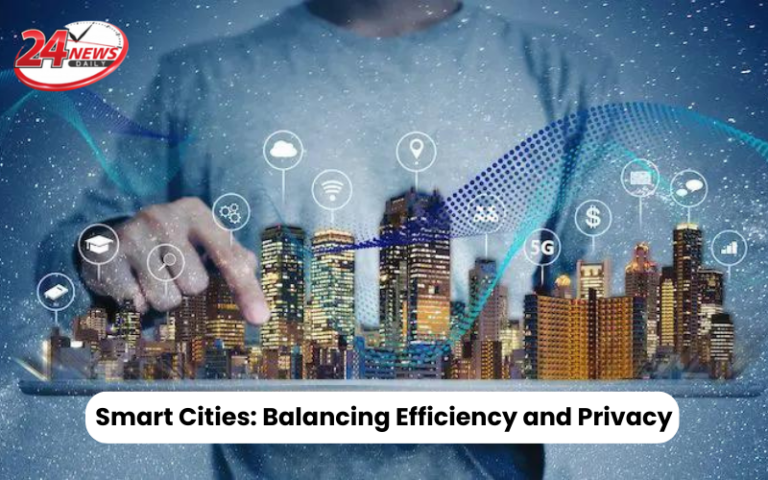Smart Cities: Balancing Efficiency and Privacy
Introduction to Building Smart Cities
Building smart cities has become a global phenomenon in recent years. The rapid advancements in technology and the need for sustainable urban development have led to the emergence of smart city initiatives worldwide. These cities leverage technology and data to enhance the quality of life for residents, improve efficiency, and promote economic growth. However, as smart cities continue to evolve, it is essential to strike the right balance between efficiency and privacy.
Understanding the Concept of Privacy in Smart Cities
Privacy is a fundamental right that must not be compromised, even in the pursuit of technological innovation. In the context of smart cities, privacy refers to the protection of individuals’ personal information and the assurance that this information is not misused or exposed to unauthorized parties. As smart city infrastructure collects vast amounts of data from various sources, including sensors, cameras, and digital devices, concerns regarding privacy and security naturally arise.
Privacy and Security Concerns in the Smart City Environment
The interconnected nature of smart city systems creates vulnerabilities that can be exploited by cybercriminals. Privacy breaches, data leaks, and unauthorized access to personal information are some of the primary concerns in the smart city environment. Hackers can potentially gain access to sensitive data, compromising the privacy of individuals and even the security of critical infrastructure. As a result, it is crucial to implement robust security measures to protect the privacy of citizens and maintain their trust in smart city initiatives.
Balancing Efficiency and Privacy in Smart City Infrastructure
Finding the right balance between efficiency and privacy is a complex task. On one hand, smart city initiatives aim to streamline processes and improve efficiency by leveraging data and technology. On the other hand, privacy concerns necessitate the implementation of safeguards to protect individuals’ personal information. Striking a balance requires careful consideration of privacy implications at every stage of planning, design, and implementation of smart city infrastructure.
Strategies for Addressing Privacy Concerns in Smart Cities
To address privacy concerns in smart cities, a multi-faceted approach is necessary. First and foremost, privacy should be incorporated as a core design principle in the development of smart city infrastructure. This involves conducting privacy impact assessments, ensuring data anonymization, and implementing strong encryption protocols. Additionally, transparency and accountability should be embedded in the governance of smart city initiatives, allowing citizens to understand how their data is collected, used, and protected.
Best Practices for Protecting Privacy in Smart City Initiatives
Several best practices can be adopted to safeguard privacy in smart city initiatives. Implementing privacy by design, encryption, and access controls are essential steps to protect sensitive data. Anonymizing collected data and minimizing data retention periods also contribute to privacy protection. Furthermore, fostering public awareness and engagement through privacy education campaigns can empower citizens to understand their rights and make informed choices regarding their personal information.
Case Studies of Successful Smart City Projects That Prioritize Privacy
Several smart city projects around the world have successfully implemented privacy-centric approaches. Barcelona, Spain, for instance, has developed the “Decidim” platform, which allows citizens to participate in decision-making processes while ensuring the privacy of their personal data. Singapore’s “Smart Nation” initiative focuses on building public trust through secure data sharing and comprehensive privacy governance frameworks. These case studies demonstrate that it is possible to achieve efficiency and privacy in harmony within smart city projects.
The Role of Technology in Ensuring Privacy in Smart Cities
Technology plays a crucial role in safeguarding privacy in smart cities. The use of advanced encryption algorithms, secure data storage, and real-time threat monitoring can help mitigate privacy risks. Artificial intelligence (AI) and machine learning algorithms can be employed to detect and prevent privacy breaches. However, it is vital to strike a balance between the use of technology for privacy protection and the potential risks associated with data centralization and surveillance.
Government Regulations and Policies Related to Privacy in Smart Cities
Government regulations and policies are essential in establishing a framework for privacy protection in smart cities. Legislation should outline clear guidelines for data collection, storage, and usage, as well as provide mechanisms for citizens to exercise their privacy rights. Governments should also collaborate with industry stakeholders to develop standards and certifications that promote privacy-centric practices. Regular audits and assessments can ensure compliance and accountability among smart city operators.
Conclusion: Achieving a Balance Between Efficiency and Privacy in Building Smart Cities
Building smart cities that prioritize both efficiency and privacy requires a comprehensive and thoughtful approach. By incorporating privacy as a core principle, implementing robust security measures, and fostering transparency and accountability, smart city initiatives can deliver benefits to citizens while protecting their privacy. Governments, industry stakeholders, and citizens must work together to strike the right balance and ensure that smart cities are built with the utmost consideration for privacy and data protection.
CTA: As smart cities continue to evolve, it is crucial for governments, industry stakeholders, and citizens to actively participate in shaping the future of urban development. By prioritizing privacy and adopting best practices, we can build smart cities that not only enhance efficiency but also protect the privacy of individuals. Let us strive towards creating smart cities that are truly smart in every sense of the word.


